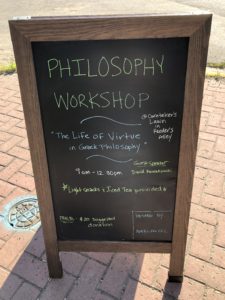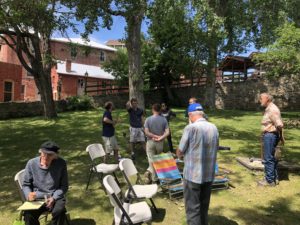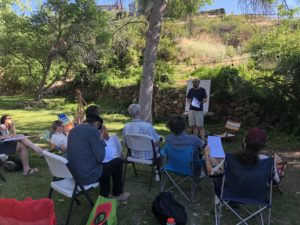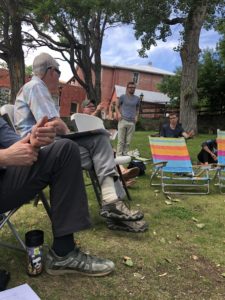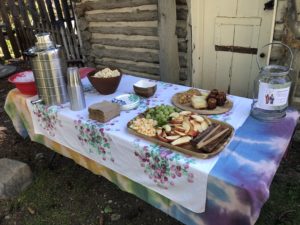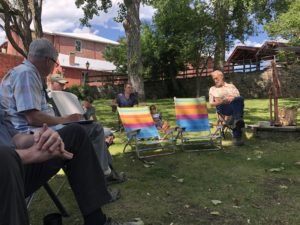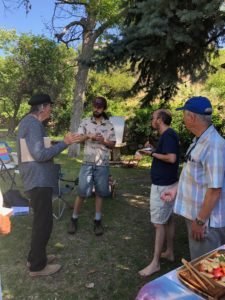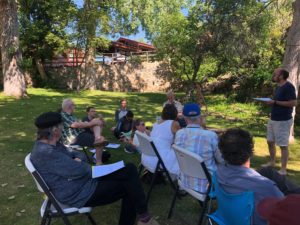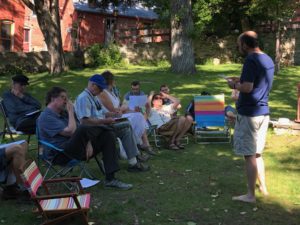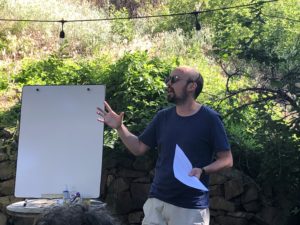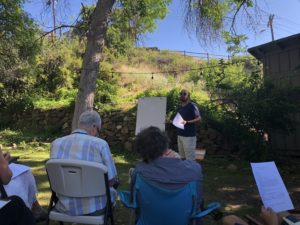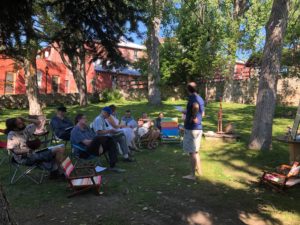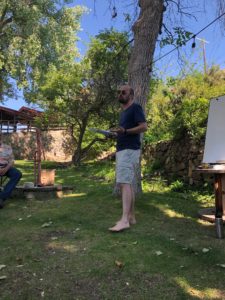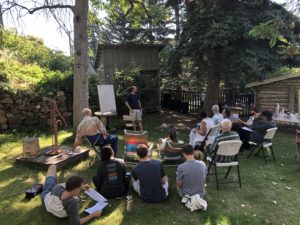[et_pb_section fb_built=”1″ _builder_version=”4.16″ custom_padding=”0|0px|13px|0px|false|false” global_colors_info=”{}” da_is_popup=”off” da_exit_intent=”off” da_has_close=”on” da_alt_close=”off” da_dark_close=”off” da_not_modal=”on” da_is_singular=”off” da_with_loader=”off” da_has_shadow=”on” da_disable_devices=”off|off|off”][et_pb_row _builder_version=”4.16″ background_size=”initial” background_position=”top_left” background_repeat=”repeat” custom_padding=”0|0px|0|0px|false|false” global_colors_info=”{}” column_structure=”1_3,2_3″][et_pb_column type=”1_3″ _builder_version=”4.16″ custom_padding=”|||” global_colors_info=”{}” custom_padding__hover=”|||”][et_pb_image src=”https://originalsite.merlinccc.com/wp-content/uploads/2019/02/LL-Blog_Stoner_VirtueandLiberty_1200-1024×576.jpg” align_tablet=”center” align_last_edited=”on|desktop” _builder_version=”4.16″ z_index_tablet=”500″ global_colors_info=”{}” align_phone=”center”][/et_pb_image][/et_pb_column][et_pb_column type=”2_3″ _builder_version=”4.16″ custom_padding=”|||” global_colors_info=”{}” custom_padding__hover=”|||”][et_pb_text admin_label=”About the Workshop” _builder_version=”4.16″ z_index_tablet=”500″ global_colors_info=”{}”]
In this 3.5-hour “philosophy as a way of life”-inspired workshop led by special guest scholar & Philosophical Advisor for Merlin CCC, David Nowakowski, PhD we looked at what it might mean to live a life of virtue. Select readings and activities inspired by numerous ancient (and some contemporary) thinkers were examined and applied with the aim of introducing participants to a variety of philosophical perspectives on virtuous living and practical tools for living well.
[/et_pb_text][/et_pb_column][/et_pb_row][et_pb_row _builder_version=”4.16″ background_size=”initial” background_position=”top_left” background_repeat=”repeat” global_colors_info=”{}”][et_pb_column type=”4_4″ _builder_version=”4.16″ custom_padding=”|||” global_colors_info=”{}” custom_padding__hover=”|||”][et_pb_text _builder_version=”4.16″ z_index_tablet=”500″ global_colors_info=”{}”]
Workshop Description
[/et_pb_text][et_pb_text admin_label=”About the Workshop” _builder_version=”4.16″ z_index_tablet=”500″ global_colors_info=”{}”]
For the ancient Greeks, “virtue” was centrally connected to living the best possible life, making the most of our human existence. In this workshop, we examined what exactly that meant, how it was supposed to work, and in what ways it might still be relevant to us today as we choose how to direct our own lives.
We spent a good portion of our time in ancient Athens, with Aristotle’s classic discussions of virtue in the Nicomachean Ethics, as well as Plato and the Platonic tradition, on how virtue applies both to individuals and to human communities. We then looked at how Greek theories of virtue were adapted to new philosophical and religious contexts in the Roman Empire and in Europe, before being handed on to us today.
 The goal of looking at virtue from all these perspectives was to better appreciate the foundations for modern thinking about virtue in ways we may not fully have realized…with the aim of giving us a better sense of what options are available as we plan the course for our own lives, and why we might (or might not!) want to choose certain ones. Some of the big questions addressed throughout the morning included:
The goal of looking at virtue from all these perspectives was to better appreciate the foundations for modern thinking about virtue in ways we may not fully have realized…with the aim of giving us a better sense of what options are available as we plan the course for our own lives, and why we might (or might not!) want to choose certain ones. Some of the big questions addressed throughout the morning included:
- What are virtues? What do we mean in general when we talk about “virtue,” and what specific things count as virtues?
- Why do we care about having virtue, practicing it, “being virtuous,” etc.? Is this connected to morality or more?
- Is virtue a requirement, or even a goal, for everyone, or just certain people?
- Is virtue something we achieve through our own effort, or something we receive or are given?
- Is living a virtuous life something we can do on our own, or does it require friends, neighbors, community?
- And more…
[/et_pb_text][/et_pb_column][/et_pb_row][/et_pb_section][et_pb_section fb_built=”1″ _builder_version=”4.16″ custom_padding=”16px|0px|0|0px|false|false” global_colors_info=”{}” da_is_popup=”off” da_exit_intent=”off” da_has_close=”on” da_alt_close=”off” da_dark_close=”off” da_not_modal=”on” da_is_singular=”off” da_with_loader=”off” da_has_shadow=”on” da_disable_devices=”off|off|off”][et_pb_row _builder_version=”4.16″ background_size=”initial” background_position=”top_left” background_repeat=”repeat” global_colors_info=”{}”][et_pb_column type=”4_4″ _builder_version=”4.16″ custom_padding=”|||” global_colors_info=”{}” custom_padding__hover=”|||”][et_pb_text _builder_version=”4.16″ z_index_tablet=”500″ global_colors_info=”{}”]
About the Workshop Leader
[/et_pb_text][/et_pb_column][/et_pb_row][et_pb_row _builder_version=”4.16″ background_size=”initial” background_position=”top_left” background_repeat=”repeat” custom_padding=”0|0px|15.7969px|0px|false|false” global_colors_info=”{}”][et_pb_column type=”4_4″ _builder_version=”4.16″ custom_padding=”|||” global_colors_info=”{}” custom_padding__hover=”|||”][et_pb_text admin_label=”About David N.” _builder_version=”4.16″ z_index_tablet=”500″ global_colors_info=”{}”]

David Nowakowski serves as a Philosophical Advisor & Senior Fellow Mentor and Advisor for Merlin CCC. A lover of philosophy and the great outdoors, David began studying ancient philosophies and classical languages in 2001, and has continued ever since. A scholar of the philosophical traditions of the ancient Mediterranean (Greece, Rome, and North Africa) and of the Indian subcontinent, reading Sanskrit, Latin, and classical Greek, he earned his Ph.D. in philosophy from Princeton University in 2014. His work has appeared in a variety of scholarly journals, including Philosophy East & West, Asian Philosophy, and the Journal of Indian Philosophy; as well as in presentations to academic audiences at Harvard, Columbia University, the University of Toronto, Yale-NUS College in Singapore, and elsewhere.
After half a decade teaching at liberal arts colleges in the northeast, David chose to leave the academy in order to focus his energies on the transformative value of these ancient philosophical and spiritual traditions in his own life and practice, and on building new systems of education and community learning that will make this rich heritage alive and available to people of all ages and backgrounds. A hermit by nature and by committed choice, he balances contemplative solitude with his active work in teaching, counseling, and the healing arts. We are elated to be collaborating with David on our philosophy in the community activities, fellowships, and other Merlin projects.
[/et_pb_text][/et_pb_column][/et_pb_row][/et_pb_section][et_pb_section fb_built=”1″ _builder_version=”4.16″ custom_padding=”2px|0px|0|0px|false|false” global_colors_info=”{}” da_is_popup=”off” da_exit_intent=”off” da_has_close=”on” da_alt_close=”off” da_dark_close=”off” da_not_modal=”on” da_is_singular=”off” da_with_loader=”off” da_has_shadow=”on” da_disable_devices=”off|off|off”][et_pb_row _builder_version=”4.16″ background_size=”initial” background_position=”top_left” background_repeat=”repeat” custom_padding=”0|0px|15.7969px|0px|false|false” global_colors_info=”{}”][et_pb_column type=”4_4″ _builder_version=”4.16″ custom_padding=”|||” global_colors_info=”{}” custom_padding__hover=”|||”][et_pb_divider color=”#02a2c8″ divider_weight=”15″ _builder_version=”4.16″ height=”15px” box_shadow_style=”preset1″ global_colors_info=”{}”]
[/et_pb_divider][/et_pb_column][/et_pb_row][/et_pb_section][et_pb_section fb_built=”1″ _builder_version=”4.16″ custom_padding=”31.5938px|0px|21px|0px|false|false” global_colors_info=”{}” da_is_popup=”off” da_exit_intent=”off” da_has_close=”on” da_alt_close=”off” da_dark_close=”off” da_not_modal=”on” da_is_singular=”off” da_with_loader=”off” da_has_shadow=”on” da_disable_devices=”off|off|off”][et_pb_row _builder_version=”4.16″ background_size=”initial” background_position=”top_left” background_repeat=”repeat” custom_padding=”0|0px|0|0px|false|false” global_colors_info=”{}”][et_pb_column type=”4_4″ _builder_version=”4.16″ custom_padding=”|||” global_colors_info=”{}” custom_padding__hover=”|||”][et_pb_testimonial _builder_version=”4.16″ global_colors_info=”{}”]
Photos
[/et_pb_testimonial][et_pb_text admin_label=”Photo Galleries” _builder_version=”4.16″ z_index_tablet=”500″ global_colors_info=”{}”]
[/et_pb_text][/et_pb_column][/et_pb_row][/et_pb_section][et_pb_section fb_built=”1″ _builder_version=”4.16″ custom_padding=”0|0px|5px|0px|false|false” global_colors_info=”{}” da_is_popup=”off” da_exit_intent=”off” da_has_close=”on” da_alt_close=”off” da_dark_close=”off” da_not_modal=”on” da_is_singular=”off” da_with_loader=”off” da_has_shadow=”on” da_disable_devices=”off|off|off”][et_pb_row _builder_version=”4.16″ background_size=”initial” background_position=”top_left” background_repeat=”repeat” global_colors_info=”{}”][et_pb_column type=”4_4″ _builder_version=”4.16″ custom_padding=”|||” global_colors_info=”{}” custom_padding__hover=”|||”][et_pb_divider color=”#02a2c8″ divider_weight=”15″ _builder_version=”4.16″ height=”15px” box_shadow_style=”preset1″ global_colors_info=”{}”]
[/et_pb_divider][/et_pb_column][/et_pb_row][/et_pb_section][et_pb_section fb_built=”1″ _builder_version=”4.16″ custom_padding=”31.5938px|0px|4px|0px|false|false” global_colors_info=”{}” da_is_popup=”off” da_exit_intent=”off” da_has_close=”on” da_alt_close=”off” da_dark_close=”off” da_not_modal=”on” da_is_singular=”off” da_with_loader=”off” da_has_shadow=”on” da_disable_devices=”off|off|off”][et_pb_row _builder_version=”4.16″ background_size=”initial” background_position=”top_left” background_repeat=”repeat” custom_padding=”0|0px|15.7969px|0px|false|false” global_colors_info=”{}”][et_pb_column type=”4_4″ _builder_version=”4.16″ custom_padding=”|||” global_colors_info=”{}” custom_padding__hover=”|||”][et_pb_testimonial _builder_version=”4.16″ z_index_tablet=”500″ global_colors_info=”{}”]
Workshop Resources
[/et_pb_testimonial][et_pb_text _builder_version=”4.16″ z_index_tablet=”500″ global_colors_info=”{}”]
Please find below the handout provided during the workshop. Presenter notes to be added soon. To download the materials, just click on the image, read & print.
[/et_pb_text][/et_pb_column][/et_pb_row][et_pb_row _builder_version=”4.16″ background_size=”initial” background_position=”top_left” background_repeat=”repeat” global_colors_info=”{}”][et_pb_column type=”4_4″ _builder_version=”4.16″ custom_padding=”|||” global_colors_info=”{}” custom_padding__hover=”|||”][et_pb_image src=”https://originalsite.merlinccc.com/wp-content/uploads/2019/07/Life-of-Virtue_July-2019.png” url=”https://originalsite.merlinccc.com/wp-content/uploads/2019/07/Merlin-virtue-handout-July-2019.pdf” url_new_window=”on” align_tablet=”center” align_last_edited=”on|desktop” _builder_version=”4.16″ z_index_tablet=”500″ global_colors_info=”{}” align_phone=”center”][/et_pb_image][/et_pb_column][/et_pb_row][/et_pb_section][et_pb_section fb_built=”1″ _builder_version=”4.16″ custom_padding=”0|0px|0|0px|false|false” global_colors_info=”{}” da_is_popup=”off” da_exit_intent=”off” da_has_close=”on” da_alt_close=”off” da_dark_close=”off” da_not_modal=”on” da_is_singular=”off” da_with_loader=”off” da_has_shadow=”on” da_disable_devices=”off|off|off”][et_pb_row _builder_version=”4.16″ background_size=”initial” background_position=”top_left” background_repeat=”repeat” custom_padding=”23px|0px|0|0px|false|false” global_colors_info=”{}”][et_pb_column type=”4_4″ _builder_version=”4.16″ custom_padding=”|||” global_colors_info=”{}” custom_padding__hover=”|||”][et_pb_testimonial _builder_version=”4.16″ z_index_tablet=”500″ global_colors_info=”{}”]
For Further Reading
(Recommended Texts & Translations)
[/et_pb_testimonial][et_pb_text admin_label=”Resource List” _builder_version=”4.16″ link_option_url_new_window=”on” z_index_tablet=”500″ global_colors_info=”{}”]
Aristotle
- The entry on Aristotle’s ethics in the Stanford Encyclopedia of Philosophy is pretty good, but a little heavy lifting.
- Nicomachean Ethics, 2nd edition, translated by Terence Irwin. Hackett, 1999.
- This can be a challenging text, since it seems to be a set of lecture notes collected by Aristotle’s students, and not something which Aristotle himself put in a polished form for publication.
- The basic account of human flourishing, the function argument, and the initial division between ethical and intellectual virtues, can all be found in Book I
- Aristotle’s account of the ethical virtues begins in Book II
- He finally gets back to the intellectual virtues in Book VI
Plato
The translations of Plato’s works published by Hackett Publishing Company are generally accurate, easily accessible, reader-friendly, and very reasonably priced. (Since they’re commonly assigned in universities, they are also widely available as used books.) See the following specific volumes for themes on virtue:
- Plato, Complete Works, edited by John M. Cooper.
- This hardcover is now the standard English edition for Plato’s entire corpus. It contains all the same translations as the individual paperbacks listed below, plus much more, in a single place.
- Plato on Love, edited by C.D.C. Reeve.
- This contains the Alcibiades (translated by D.S. Hutchinson), along with the Phaedrus and the Symposium (both translated by Alexander Nehamas and Paul Woodruff).
- Plato, Five Dialogues, 2nd edition, trans. by G.M.A. Grube, revised by John M. Cooper.
- For our purposes, the most important dialogue here is the Phaedo, but the others which are included are also well worth reading. But see the note below about translations to avoid, and purchase carefully.
- Plato, Gorgias, translated by Donald J. Zeyl.
- Plato, Republic, translated by G.M.A. Grube and revised by C.D.C. Reeve.
- Today, this is probably the most famous and widely-read of Plato’s works, though in antiquity, it was not even part of the standard Platonic curriculum. (All of the other dialogues mentioned here were part of that curriculum.)
For most of these popular dialogues, there are a wide variety of other translations available. The ones from Penguin Books are also generally good, and typically include helpful headings to divide the text into smaller sections. Download and print this resource list here!
[/et_pb_text][/et_pb_column][/et_pb_row][/et_pb_section][et_pb_section fb_built=”1″ _builder_version=”4.16″ global_colors_info=”{}” da_is_popup=”off” da_exit_intent=”off” da_has_close=”on” da_alt_close=”off” da_dark_close=”off” da_not_modal=”on” da_is_singular=”off” da_with_loader=”off” da_has_shadow=”on” da_disable_devices=”off|off|off”][et_pb_row _builder_version=”4.16″ background_size=”initial” background_position=”top_left” background_repeat=”repeat” global_colors_info=”{}”][et_pb_column type=”4_4″ _builder_version=”4.16″ custom_padding=”|||” global_colors_info=”{}” custom_padding__hover=”|||”][et_pb_divider color=”#02a2c8″ divider_weight=”15″ _builder_version=”4.16″ height=”15px” box_shadow_style=”preset1″ global_colors_info=”{}”][/et_pb_divider][/et_pb_column][/et_pb_row][/et_pb_section][et_pb_section fb_built=”1″ _builder_version=”4.16″ global_colors_info=”{}” da_is_popup=”off” da_exit_intent=”off” da_has_close=”on” da_alt_close=”off” da_dark_close=”off” da_not_modal=”on” da_is_singular=”off” da_with_loader=”off” da_has_shadow=”on” da_disable_devices=”off|off|off”][et_pb_row _builder_version=”4.16″ background_size=”initial” background_position=”top_left” background_repeat=”repeat” global_colors_info=”{}”][et_pb_column type=”4_4″ _builder_version=”4.16″ custom_padding=”|||” global_colors_info=”{}” custom_padding__hover=”|||”][et_pb_testimonial _builder_version=”4.16″ z_index_tablet=”500″ global_colors_info=”{}”]
Thank You’s
[/et_pb_testimonial][/et_pb_column][/et_pb_row][et_pb_row _builder_version=”4.16″ background_size=”initial” background_position=”top_left” background_repeat=”repeat” global_colors_info=”{}” column_structure=”1_4,1_4,1_4,1_4″][et_pb_column type=”1_4″ _builder_version=”4.16″ custom_padding=”|||” global_colors_info=”{}” custom_padding__hover=”|||”][et_pb_image src=”https://originalsite.merlinccc.com/wp-content/uploads/2016/10/Plato-Logo-1.jpg” align_tablet=”center” align_last_edited=”on|desktop” _builder_version=”4.16″ z_index_tablet=”500″ global_colors_info=”{}” align_phone=”center”][/et_pb_image][/et_pb_column][et_pb_column type=”1_4″ _builder_version=”4.16″ custom_padding=”|||” global_colors_info=”{}” custom_padding__hover=”|||”][et_pb_image src=”https://originalsite.merlinccc.com/wp-content/uploads/2019/05/2018-MIC-Logo-Stacked-2-BLUE-GRADIENT-Blue-Text-.png” align_tablet=”center” align_last_edited=”on|desktop” _builder_version=”4.16″ z_index_tablet=”500″ global_colors_info=”{}” align_phone=”center”][/et_pb_image][/et_pb_column][et_pb_column type=”1_4″ _builder_version=”4.16″ custom_padding=”|||” global_colors_info=”{}” custom_padding__hover=”|||”][et_pb_image src=”https://originalsite.merlinccc.com/wp-content/uploads/2019/05/New-Logo-Transparent-Background-2016.png” align_tablet=”center” align_last_edited=”on|desktop” _builder_version=”4.16″ z_index_tablet=”500″ global_colors_info=”{}” align_phone=”center”][/et_pb_image][/et_pb_column][et_pb_column type=”1_4″ _builder_version=”4.16″ custom_padding=”|||” global_colors_info=”{}” custom_padding__hover=”|||”][et_pb_image src=”https://originalsite.merlinccc.com/wp-content/uploads/2014/05/APA-Logo_Website.png” align_tablet=”center” align_last_edited=”on|desktop” _builder_version=”4.16″ z_index_tablet=”500″ global_colors_info=”{}” align_phone=”center”][/et_pb_image][/et_pb_column][/et_pb_row][et_pb_row _builder_version=”4.16″ background_size=”initial” background_position=”top_left” background_repeat=”repeat” global_colors_info=”{}”][et_pb_column type=”4_4″ _builder_version=”4.16″ custom_padding=”|||” global_colors_info=”{}” custom_padding__hover=”|||”][et_pb_text _builder_version=”4.16″ z_index_tablet=”500″ global_colors_info=”{}”]
Thank you to P.L.A.T.O. (Philosophy Learning and Teaching Organization), Montana Internet, BWP Helena Great Northern Hotel, and the APA Berry Fund for Public Philosophy for helping support our philosophy in the community programs and making events like this possible! Thank you to our Guest Speaker David Nowakowski.
[/et_pb_text][/et_pb_column][/et_pb_row][/et_pb_section]

